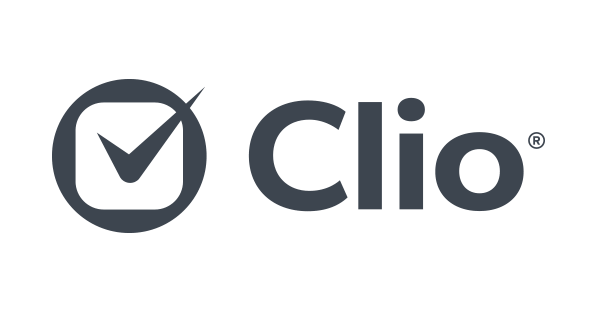Clio Unveils New 2024 Report: Legal Trends for Solo and Small Firms
May 21, 2024


Clio’s third edition of the Legal Trends for Solo and Small Law Firms report is now available
- Clio offers solo and small law firms unique analyses to benchmark their business performance against other similar sized firms and larger firms in the broader legal services market
- Despite growing case numbers and revenue, solo and small law firms continue to struggle with balancing administrative work, like billing and collection, with legal work, creating operational hurdles
Clio, the world’s leading provider of legal technology, announces the release of its 2024 Legal Trends for Solo and Small Firms report. One of Clio’s flagship annual research publications, the report provides key benchmark data for solo and small law firms, offering unique insights into their performance relative to larger firms in the legal market. Solo and small law firms are examined for their financial performance, the influence of legal technology on their practice, and for the first time this year, the impact and perception of artificial intelligence in legal practices.
“The solo and small firm segment holds a unique significance for Clio, as we often serve as their first technology partner, and the foundation of their legal-specific tech stack,” said Jack Newton, CEO and Founder of Clio. “We research this broad segment to dive deep into what’s working well, and where the common challenges lie for both our customers and legal professionals at large, who may lag behind in tech adoption. These findings are essential reading for those looking to benchmark their practice. They offer the broader industry a birds eye view of the competitive landscape and the prevailing trends shaping the sector.”
Exploring the impact of technology integration and AI adoption
As AI becomes increasingly prevalent in law firms, solo and small practices are experiencing significant shifts in their operations. These technologies not only speed up billing processes but also drastically cut down lockup periods, improving both cash flow and client satisfaction.
The adoption of AI in the legal sector is on the rise as firms begin to recognise its potential for automating routine tasks and enhancing decision-making capabilities. Despite some scepticism about its full capabilities, the benefits of AI are gaining recognition, streamlining operations, and increasing efficiency. This shift is empowering smaller firms to not only refine their daily operations but also strategically enhance their growth and competitive stance in the legal marketplace.
- 16% of solos and 19% of lawyers in small firms are currently using AI for marketing, indicating a proactive approach towards leveraging technology to expand their client outreach 40% of solos and 35% small law firms reported plans to adopt AI technology in the next six months, compared to only 24% of larger law firms.
- Solos lawyers are more likely to be using AI in their practices today, with 21% reporting usage compared to 19% of overall firms.
The report highlights a broader AI trend: clients are more enthusiastic about the use of AI than the lawyers themselves, suggesting that firms embracing AI could secure a significant competitive advantage. This client-driven demand for AI-enabled services signifies a pivotal shift towards more technologically integrated law firms.
Addressing lockup challenges in solo and small law firms
Solo and small law firms are confronted with significant lockup performance challenges that can impact their financial stability. Lockup—comprising unbilled work-in-progress, uncollected debtor accounts, and total lockup—presents a critical area for improvement. While the top 25% of solo and small firms, which include those that issue bills or collect payments the fastest, manage to outperform larger firms in reducing lockup durations, the bottom quartile often faces difficulties, with lockup periods substantially exceeding industry norms. This variability indicates that while some smaller firms excel at efficient billing and collections, others struggle significantly and risk financial strain due to delayed revenue cycles.
Solo and small law firms have grown significantly in case volume and revenue, but still confront persistent operational challenges in balancing administrative and legal work
Insights from the report indicate that solo and small law firms are experiencing growth in caseloads and revenue. However, these gains are tempered by modest increases in recorded billable hours and ongoing challenges in billing and collection practices. The report suggests that while solo and small law firms are increasing their productivity, they face hurdles in efficiently managing and capitalising on this growth.
- Solo and small firm members who bill their time have only seen marginal growth in the new number of billable hours captured, with solo firms experiencing just over a 1% increase and small firms over an 8% increase in billable hours compared to eight years ago.
- Even after adjusting for inflation, solo firms have increased billing amounts by 38% and revenue by 42%, with small firms experiencing a 49% rise in billing and a 55% increase in revenue, while larger firms have seen nearly double this growth.
Clio continues to support this evolution by providing the tools and insights necessary for these firms to thrive in a competitive legal landscape, ensuring they remain at the forefront of technology integration and client satisfaction.
“The findings from our Legal Trends for Solo and Small Firms report underscore the profound influence of technology integration and AI adoption in the legal sector,” Newton added. “While the solo and small firm segment experiences remarkable increase in demand for their services, they face challenges in effectively managing and leveraging this growth. Embracing technological solutions such as AI and online payments offers tangible operational enhancements, from streamlining billing processes to elevating client satisfaction. This is crucial as they navigate sustained growth for the enduring success of their law firms.”
The full report is available for download at clio.com/ltr.